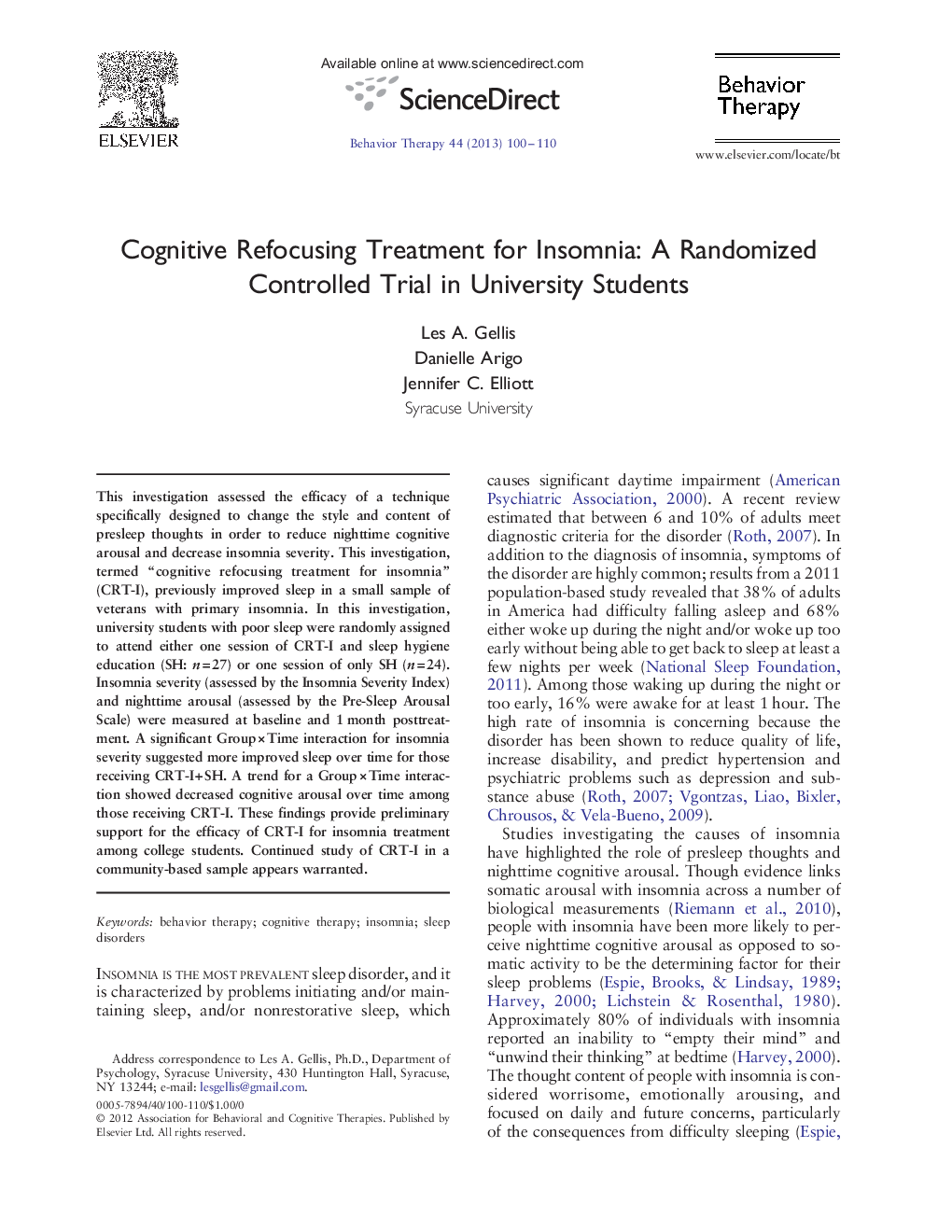| کد مقاله | کد نشریه | سال انتشار | مقاله انگلیسی | نسخه تمام متن |
|---|---|---|---|---|
| 901228 | 915853 | 2013 | 11 صفحه PDF | دانلود رایگان |

This investigation assessed the efficacy of a technique specifically designed to change the style and content of presleep thoughts in order to reduce nighttime cognitive arousal and decrease insomnia severity. This investigation, termed “cognitive refocusing treatment for insomnia” (CRT-I), previously improved sleep in a small sample of veterans with primary insomnia. In this investigation, university students with poor sleep were randomly assigned to attend either one session of CRT-I and sleep hygiene education (SH: n = 27) or one session of only SH (n = 24). Insomnia severity (assessed by the Insomnia Severity Index) and nighttime arousal (assessed by the Pre-Sleep Arousal Scale) were measured at baseline and 1 month posttreatment. A significant Group × Time interaction for insomnia severity suggested more improved sleep over time for those receiving CRT-I + SH. A trend for a Group × Time interaction showed decreased cognitive arousal over time among those receiving CRT-I. These findings provide preliminary support for the efficacy of CRT-I for insomnia treatment among college students. Continued study of CRT-I in a community-based sample appears warranted.
► CRT-I is a brief intervention that changes pre-sleep cognitions to treat insomnia.
► CRT-I plus sleep hygiene education (SH) is compared to SH only.
► CRT-I + SH leads to significantly more improved insomnia at a 1 month follow-up.
► Large decreases in insomnia and cognitive arousal are observed for CRT-I + SH.
► CRT-I is a promising treatment for insomnia.
Journal: Behavior Therapy - Volume 44, Issue 1, March 2013, Pages 100–110